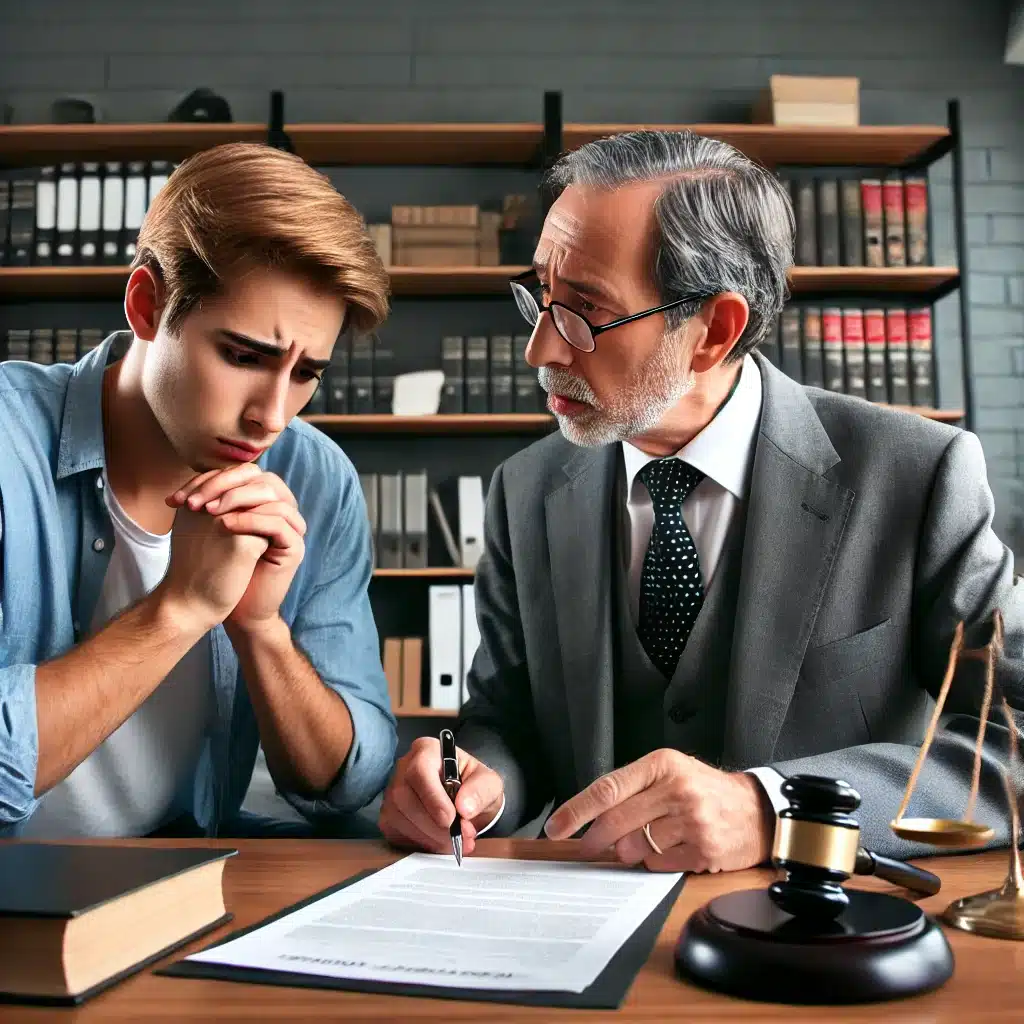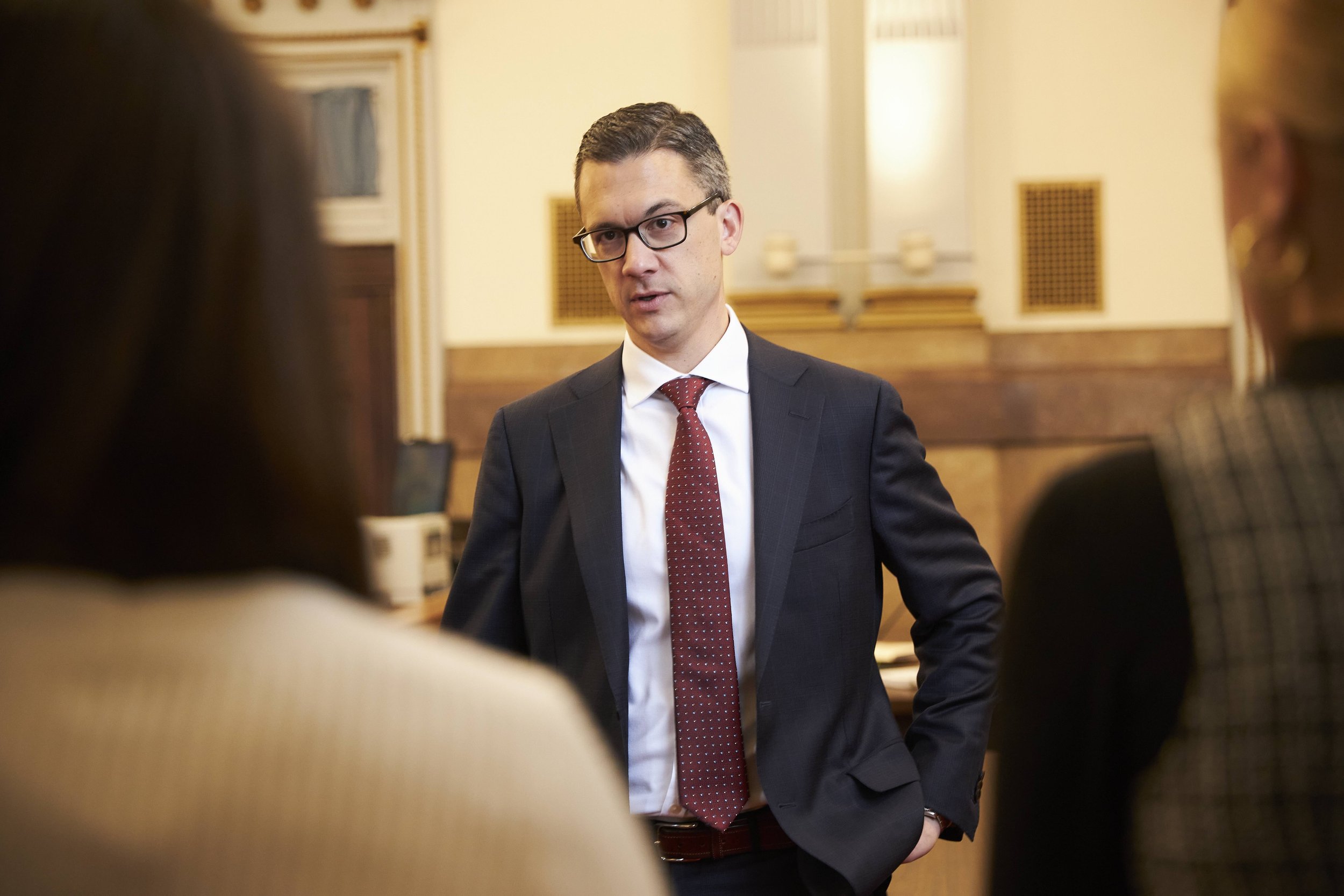Lawyer's Role in Filing a Habeas Corpus Petition Explained
Lawyer's Role in Filing a Habeas Corpus Petition Explained
Blog Article
Comprehending the Role of a Post-Conviction Lawyer in Seeking Justice After a Criminal Sentence
In the complex landscape of post-conviction lawful proceedings, the function of a post-conviction lawyer is essential in navigating the course to justice after a criminal conviction - south dakota federal habeas corpus attorneys. As the quest of justice prolongs beyond the confines of initial proceedings, the duty of a post-conviction legal representative arises as a sign of hope for those looking for to fix oppressions and recover their legal rights within the legal system.
Post-Conviction Lawyer's Investigative Job
Post-conviction lawyers participate in careful investigative work to reveal new proof, step-by-step errors, or transgression that might potentially lead to overturning a conviction. This investigatory phase is essential in the post-conviction procedure as it aims to identify any type of neglected information or lawful errors that might have affected the outcome of the first trial. Post-conviction lawyers look into instance documents, witness statements, and lawful documents with a fine-tooth comb, looking for any inconsistencies or irregularities that could be grounds for appeal.
Through extensive examination, post-conviction lawyers aim to drop light on possible oppressions that may have occurred during the initial test. By looking at every facet of the legal proceedings, post-conviction attorneys work relentlessly to reveal any kind of factors that may have influenced the verdict.
Crafting Appeals and Petitions
In the quest of justice after a conviction, knowledgeable lawyers carefully craft charms and requests to existing engaging debates for the reconsideration of lawful choices. Crafting charms and requests needs a deep understanding of the lawful system, attention to information, and calculated thinking. Post-conviction legal representatives examine test records, recognize potential errors or violations of rights, and develop lawful debates to test the sentence or sentence.
When crafting a charm, lawyers focus on highlighting legal errors that might have influenced the result of the situation. They investigate case regulation, laws, and legal precedents to sustain their disagreements. Requests, on the other hand, might entail providing new proof that was not readily available during the trial or showing adjustments in the legislation that require a review of the sentence.
In addition, post-conviction attorneys should abide by rigorous procedural policies and due dates when filing allures and requests. They must offer their disagreements plainly and persuasively to persuade the court to grant alleviation to their clients. With meticulous crafting of allures and applications, post-conviction attorneys make every effort to protect justice for individuals that have been wrongfully founded guilty or unjustly sentenced.

Going After Post-Conviction Alleviation
Looking for alleviation after a conviction requires a strategic and attentive method by seasoned legal specialists. Post-conviction relief incorporates a range of lawful mechanisms created to test the validity of a conviction or sentence (alaska federal habeas corpus). These methods consist of filing motions for a new test, seeking charms, looking for writs of habeas corpus, and offering recently found evidence. Post-conviction legal representatives play a crucial duty in browsing these complicated procedures, making certain that all lawful alternatives are discovered to remedy injustices that might have happened during the test or sentencing stage.
One typical form of post-conviction relief is submitting a request for post-conviction relief, typically based upon insurance claims of inadequate support of counsel, prosecutorial misconduct, freshly found proof, or constitutional violations. These applications call for a comprehensive evaluation of the trial record, lawful research, and convincing advocacy to persuade the court to provide relief. Experienced post-conviction legal representatives possess the skills and expertise necessary to determine sensible legal cases, carry out examinations, and existing compelling disagreements to safeguard relief for their clients. By carefully seeking post-conviction relief, these legal specialists strive to remedy losing the unborn babies of justice and promote the principles of fairness and due process in the criminal justice system (Lawyer).
Using Forensic Evidence
When challenging a conviction or sentence, the strategic utilization of forensic evidence can be an effective device in post-conviction lawful process. Forensic habeas corpus maryland evidence encompasses a large range of clinical strategies made use of to check out criminal offenses and develop truths in court. Post-conviction lawyers can utilize forensic evidence to test the credibility of convictions by presenting brand-new clinical findings that were not available throughout the initial trial.

Involving in Sentence Alterations
Post-conviction lawyers might discover the possibility of sentence adjustments as a lawful opportunity to attend to disproportionate or unfair sentences bied far in criminal situations. Sentence adjustments involve seeking changes to the regards to an offender's sentence after a conviction has happened. These modifications can consist of lowering the size of a sentence, changing the type of punishment imposed, or discovering different sentencing choices.
Post-conviction attorneys can seek sentence alterations with various legal devices, such as submitting movements for sentence reduction, appealing for thoughtful launch, or working out plea bargains for minimized sentences. They need to thoroughly review the conditions of the case, assess the legal premises for looking for an adjustment, and present compelling disagreements to the court sustaining the demand for a modified sentence.
Taking part in sentence modifications calls for a complete understanding of criminal legislation, punishing guidelines, and the specific treatments involved in looking for post-conviction relief. Post-conviction legal representatives play a crucial function in advocating for reasonable and just end results by challenging sentences that are unduly rough or do not align with the concepts of justice.
Conclusion
Finally, the role of a post-conviction attorney is crucial in looking for justice after a criminal conviction. With investigatory work, crafting charms and petitions, going after post-conviction alleviation, utilizing forensic proof, and participating in sentence adjustments, these attorneys play a vital function in supporting for their clients and making sure that their rights are supported within the criminal justice system. Their devotion and competence are crucial in navigating the complexities of post-conviction process and accomplishing a reasonable end result for individuals dealing with criminal sentences.
Report this page